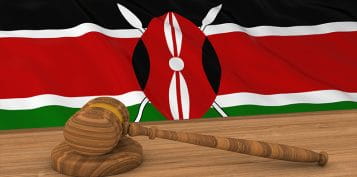Philippines Gambling Laws – Laws & Legal Games
Knowing the Philippines gambling laws is important when you intend to enjoy betting and casino games. This article is dedicated to the laws, authorities, legal games, and gambling locations in the Philippines. We will also mention the online gambling law in the Philippines and how Filipino players can access them.

Besides the Philippines gambling law that regulates licensed gaming locations and legal games, we will tell you about the illegal gambling law in the Philippines and the illegal games. We also included a laws about gambling in the Philippines Q&A section at the end of the article. Check the element below and jump to the section that is most interesting to you or read the entire article top to bottom.
History of Philippines Gambling Laws
History shows that gambling has been popular in the Philippines even before the 16th century. It is believed that the first games came from China and other countries close to the archipelago. The Spanish colonisers created the first casinos for sailors to have fun. A couple of centuries later, the American colonisers tried to ban gambling, but gaming had already rooted in the society.
The best thing the colonists and local authorities could do was regulate the gambling games. That leads to the introduction to the legal lotteries, horse races, and cockfighting in the middle of the 19th century. In the 1930s appeared institutionalised gambling for charitable purposes. Later, more games were introduced to Filipino players, and new laws were created. Read on to find out what they are.
Gambling Laws in the Philippines
There are many Philippines gambling laws specialising in regulating one game or another, but above all laws stands the Philippines Constitution. Alongside the main law stand the presidential decrees and the Revised Penal Code, which refer to different gambling games and illegal gambling activities. In the table below, we listed some of the regulations you may encounter when searching for gambling regulations in the Philippines:
| ⚖️ Law | ✔️ What the Law Regulates |
|---|---|
| 🏇 Horse Racing Law (1961) | The Republic Act No. 3063 regulates horse races, horse racetracks, and related matters. |
| 🐓 Cockfighting Law (1974) | Presidential Decree No. 499, aka the Cockfighting Law, governs everything related to cockfighting establishments, ownership of cockpits, and the fights. |
| 💣 Game Fixing Law (1974) | Presidential Decree No. 483 penalises for game-fixing, points shaving, illegal betting, and other machinations in sports competitions and sports betting. |
| 🃏 Presidential Decree No.1067-A (1975) | This act defined legal gambling in the Philippines and established the Philippine Amusement and Gaming Corporation (PAGCOR). |
| 🎱 Presidential Decree No. 1869 (1983) | Holds guidelines for PAGCOR on authorisation, licensing, and regulation of all games of chance. |
| 👮 Republic Act 9287 (2004) | Increases the penalties for holding and playing illegal numbers games. |
| 📱 Executive Order No. 13 (2017) | Defines illegal online gambling: “any activity not authorised by an operator’s licensing authority”. Urges the operators to invite Filipino gamblers to play at Filipino lotteries, licensed online casinos, and sportsbooks. |
| 💸 Anti-Money Laundering Law (2017) | The Philippine Anti-Money Laundering Council (AMLC) lists risk management policies mandatory for all Philippine-based licensed casinos. |
| 🐣 eSabong Law | House Bill 8910 is a proposed bill aiming to eliminate eSabong (online cockfight betting) and strengthen professional sports oversight. |
As you can see, the Filipino gambling laws change and constantly improve to catch up with the innovations of the gaming industry. Those are some of the available regulations, so if you are interested in the subject, we recommend you dig into the depths of Philippines legislation. We will move on with more topics that Filipino players may find interesting.
Legal Gambling Age in PH
Since every gambling law in the Philippines is transformed and improved over time, we will speak only about current matters. In the Philippines, you have to be 21 years old to gamble at brick and mortar and online casinos. Even when playing at offshore gambling sites Filipinos must be 21. The Philippines laws are strict, and all violators are punished.
Winners Tax Paid by Filipino Players
According to the Philippine Tax Code and the gambling laws Philippines, players can read there is no standard winner tax collected by the government because taxation of gambling income marked as a secondary income is a grey area. In general, the prizes of up to PHP 10,000 are taxed at 10%, while wins of PHP 10,001 and more are taxed 20%. The good news is that the Philippine government does not prosecute people for tax evasion when gambling earnings are involved.
On the other hand, PAGCOR expects from the operators a 5% franchise tax and a 50% tax of the total winnings from gambling. According to the laws about gambling in the Philippines, the funds go to the government and spread over infrastructure and civic projects.
Filipino Gambling Crimes & Punishment
Since the gambling industry provides multiple opportunities for frauds, the Philippines gambling law and Penal Code have punishments for every violation. Check the list of offences performed by players and operators, and don’t break the law if you gamble in the Philippines:
- 😎 Cheating: players often get the idea to cheat to win. There are more ways to cheat than we can count, but the perpetrator always faces a punishment once caught. Depending on the severity of the crime, the penalties may include a ban from gambling, a fine, jail time, or a combination of fine and imprisonment.
- 🔥 Game Fixing, using faulty equipment, score changes, favouritism of one player or gambler over the rest are illegal actions performed by some operators. Once again, depending on the severity of the violation, the operator may lose the gaming licence, be fined, or even get a prison sentence.
- 🔒 Illegal Gambling actions bring penalties for all players, operators, and everyone else involved with illegal gaming and wagering. All violators are considered criminals and punished according to the Philippine Penal Code.
- 🧼 Money Laundering: the Philippine Anti-Money Laundering Council (AMLC) deals with all illicit transactions to and from Philippine casinos. To ease the AMLC work, the casinos must report bets once they reach PHP 3,000,000 within 24 hours.
Besides the listed methods, there are many more ways gamblers and operators try to outsmart the gambling laws. The list of crimes grows exponentially when we add the crime groups and everyone outside of the gambling world who tries to steal or make illegal profit from casinos. All the work in preventing all illegal gambling is placed in the hands of the authorities we will describe in the next section of this article.
Gambling Regulatory Organs in the Philippines

The illegal gambling law in the Philippines has roots far back in time. Since the Spanish colonisation there have been attempts to stop excessive gambling. Later on, the Americans tried to ban the casinos, but they only succeeded in controlling the gaming houses by taking fees from the operators and legalising gambling.
Philippine Amusement and Gaming Corporation (PAGCOR)
Presidential Decree No.1067-A of 1975 created the Philippine Amusement and Gaming Corporation (PAGCOR). The powers and functions of this organisation are opening and operating government casinos. The PAGCOR issues franchises and licences and regulates the work of land-based and online casinos in the Philippines. Offshore gambling sites also need the corporation’s licence before offering their games to Filipino players.
PAGCOR regulates games of chance, cards, and games of numbers. In the 1990s, bingo and lottery were added to the list of games monitored by PAGCOR. The corporation also sets fair play standards and measures all operators must follow. Furthermore, the PAGCOR is the largest revenue contributor to the Philippine government. The revenue is collected and used by the corporation to benefit the country.
Games and Amusement Board (GAB)
In 1951, the Games and Amusement Board (GAB) was established after Executive Order No. 392 became part of the Philippine gambling law. This commission’s mission is to regulate and oversee all sports and sporting events all over the Philippines. They also deal with illegal activities related to sports and sports betting. The idea is to develop conditions for Filipino world-class professional athletes and protect their future as professionals.
Philippine Charity Sweepstakes Office (PCSO)
The gambling law in the Philippines has a special section for charity lotteries and gambling governed by the Philippine Charity Sweepstakes Office (PCSO). Since 1934, this government agency has organised and conducted many sweepstakes and lotteries to support a cause and raise funds for different health and welfare-related programs. The entire revenue goes for improving the quality of life in all Filipino communities.
Philippine Racing Commission (PHILRACOM)
Presidential Decree No. 420 (March 20th, 1974) established the Philippine Racing Commission (PHILRACOM). The commission’s responsibilities are the horse racing industry’s growth and development in the Philippines. According to the Philippines gambling laws, the revenue, employment venue, and good relations with the local horse racing associations are also the commission’s responsibility.
Legal Land-Based & Online Casinos in PH

As you saw by now, there is more than one Philippines gambling law the local casinos and gaming establishments have to follow. One of the main tourist destinations are the integrated resorts and casinos. With 20+ casinos in Metro Manila and more spread throughout the country, there is no wonder why the Philippines has become one of the gambling capitals of Southeast Asia, alongside Macau casinos.
Integrated Resorts in Manila & the Philippines
Many of the gambling laws Philippines have been created to regulate the establishment and activity of the integrated resorts. In 2017 the Eye in the Sky Series, meaning the Philippines Gaming Jurisdiction Surveillance Monitor, listed the major participants in the gambling resorts industry. The Resorts World Manila at the Entertainment City is the first private casino in Metro Manila, Philippines. Next to this great name stand many more popular resorts like:
- City of Dreams – Nobu Hotel Casino
- Hyatt Regency Manila
- Midas Hotel & Casino
- Midori Clark Hotel & Casino
- New Coast Hotel Manila
- Okada Manila
- Resorts World Manila
- Solaire Resort and Casino
- Waterfront Cebu City Hotel & Casino
As you can see, there are more than enough Manila casino resorts to choose from. All those operators offer excellent entertainment and a unique environment for all players and visitors equally. Explore the list, and undoubtedly, you will select the perfect location for your next holiday.
Online Casinos & Legal Gambling Sites in the Philippines

There is no special online gambling law in the Philippines. The Philippine gambling laws regulate the activity of the Philippine and offshore operators. Online gambling is interesting because the local operators do not offer their services to Filipino players, so instead, players use offshore online gambling sites.
To offer its games and services in the Philippines, the Philippine Offshore Gaming Operators (POGOs) must register and get a licence from the PAGCOR. Once licensed, the operators can deliver an authentic online casino entertainment with slots, table games, live dealer games, bingo, sports betting, and more to the Filipino players.
Legal & Illegal Gambling Games for Filipino Players
In the previous section, we mentioned the online gambling law in the Philippines and a list of games Filipino players can access online. In this section of our article, we will tell you about the legal and illegal games in the Philippines. Those games can be found at brick and mortar casinos and the best online roulette sites in the Philippines.
Legal Games in the Philippines
Legal gambling games cover a vast variety of entertainments. You may not know this, but the Philippines are one of the countries where animal fights are still legal and even considered national sports. Below we listed the main types of wagering and gaming anyone over the age of 21 can participate at:
Even though it is sometimes difficult to control or stop traditions, the Philippine government regulated cockfighting pits and animal fights. An essential part of the tradition of the cockfights is the victorious rooster to be healed while the losers are eaten. This may seem barbaric to some people, but animal fights are legal even so.
Illegal Gambling in PH
The illegal gambling law in the Philippines deals with all illegal sports and gambling matters. Since there is a long list of legal gambling games any 21 years old player can access, there are many illegal games. We recommend you play at licensed and regulated locations and avoid the shady gambling dens and the following games:
Jueteng is an illegal numbers game similar to lottery. The game was brought from China (“hue” means “flower”, and “teng” means “to bet”) and is played by placing wagers over combinations of two numbers from 1 to 37 (or 38 in some areas). Then, two bolitas (numbered balls) are drawn from a basket to announce the winning combination.
Masiao and Last Two are also numbers games. Masiao is mostly played in Visayas and Mindanao. Playing involves betting on the winning numbers of the national lotteries. The last Two is another illegal numbers game. Here, the winning combination is formed from the last two digits of the first prize of the winning Sweepstakes ticket from the weekly lottery draw.
Religion, Culture & Gambling Addiction in PH

Philippines gambling laws managed to put borders on this type of entertainment. Whatever they had not done is taken care of the religion and culture. Filipinos have a reputation of a gambling society, but the truth is that over 86% of the population is Roman Catholic. The church is against gambling and constantly reminds us of the moral impacts on society and the people.
Even though religion is strictly against gambling, the gambling laws Philippine players rely on defend all traditions. For example, it is normal to bet, play Mahjong, card or table games during paglalamay (24-hour vigil over the dead) and funerals. Sakla (Philippine version of tarot cards) is also played at the wakes, and part of the winnings are given to the families to cover the funeral expenses.
Considering all those traditions in the Philippines, preventing gambling addiction is taken seriously. PAGCOR-operated gambling areas are obligated to prevent addiction under the Code of Practice for Responsible Gaming. There is a responsible gaming program with casino employees training and advertisement guidelines. Alongside this, there are requirements for limited access to the gaming areas and restriction measures to problem gamblers.
Philippines Gambling Laws Q&A
Our article about the Philippines gambling laws has essential information about the gaming legislation, legal and illegal games, and the casinos you can play at the gaming locations of this archipelago. Now, we will answer interesting Filipino gambling questions:







